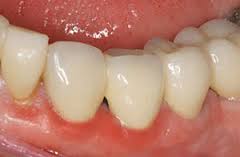Dental problems.
Widely used as a dental treatment to replace one or more missing teeth, a dental implant is a surgical procedure through which a metal root, usually made up of titanium is placed into the jawbone; this root fuses with the bone in a period of 3-6 months and then an abutment and a dental prosthesis are attached to it. Nowadays, dental implants are considered the most suitable and efficient method to replace a missing tooth, because of different reasons.
Since it fuses with the bone, this process is known as osseointegration, a dental implant can last long-life and it guarantees a strong support for the prosthesis; it prevents the bone loss, because it stimulates the jawbone and it allows patient to feel as he or she has a natural tooth, with all the positive consequences of the case for the overall health and self-confidence.
In the 70’s and 80’s the success rate of the implants was about 50%, while the rate has gradually climbed to about 96% today, even thanks to the material used for the dental implant, a bio-compatible titanium.
Implant problems.
As any other surgical procedures, a dental implantation can lead to some problems or can have some contraindications: about the most common contraindication, patients with unhealthy bones and gums usually require extra-treatments to allow bones to host the root; uncontrolled type II diabetes; the use of oral or intravenous bisphosphonates; bruxism or tooth grinding; smoking. These conditions might impede the dentist to apply a dental implant.
As regards problems following a dental implant treatments, there are the failure of the osseointegration: a very rare event that can happen in patients who lack an adequate bone height, width or length; a peri-implantitis: this is an infection that can be caused if bacteria is present during oral surgery or if a proper dental hygiene doesn’t follow the implantation; a peri-implantitis can sometimes be treated, but in most cases the implant must be removed. Patients with diabetes, smokers, patients with thin gums and those with poor oral hygiene are at greater risk of developing the infection.
Another possible but rare problem is a damage to the surrounding tissues or the nerves. It seems that in almost all cases, this problem is caused by mistakes made by an inexperienced dentist; sinus problems can happen when dental implants placed in the upper jaw protrude into sinus cavities.
Dental implants problems. Risks.
Dental implant procedure is safe and risks are minimal, especially if the dentist, the periodontist or the oral surgeon is experienced and qualified. Risks are minimized when a history is taken and a good clinical examination is performed.





